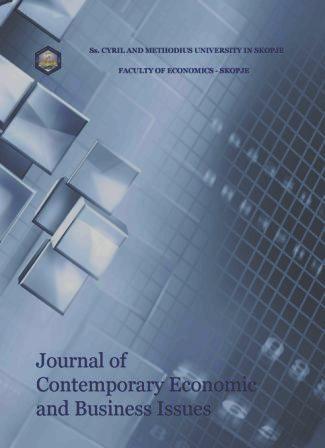Dissolving „the unholy marriage“: Hayek‘s recommendation on monetary and fiscal policy
Keywords:
economic order, competition, money, economic and political freedomAbstract
The contribution by the Austrian economist Friedrich von Hayek to monetary theory stimulates a far-reaching debate on the role of the government in monetary management and the effects of alternative policies in regulating the issuance of money. Since the early 1930s Hayek had been concerned about the role of money in the theory of production (Hayek, 1931). Influenced by Eugene Bohm-Bawerk’s theory of capital, Hayek deeply examined the effects of monetary policy on the process of capital accumulation. As regards investment decisions, Hayek considered that an inflationary credit expansion by the central bank can lead to capital misallocation over time caused by artificially low interest rates.
Indeed, the fundamental problem in economics, for Hayek, is that of coordinating the plans of many independent individuals.The main advantage of a competitive economic order, in Hayek’s view, is that rational agents respond to price signals, which convey the relevant information available in the markets, for the purpose of economic calculus. In his view, competition, through the price market system, leads to such coordination. The underlying critique relies on arbitrary interventions related to the presence of the state in economic systems (see, for example, Hayek, 1944). After the Second World War, Hayek discussed the redefinition of the legitimacy of the state and stressed the need to defeat the growing state intrusion in a democratic framework. Besides, he privileged the analysis of the values that shape the interrelations of individuals in a free society. Assessing the practical superiority of the free market dynamics over governments’ actions, Hayek believed that no government can know enough to effectively plan the future path of the economy and society. Further, central banks do not have the relevant information to correctly manage the money supply.
Frederic von Hayek, in fact, restated the relevance of concepts and ideas proposed by the classical liberal philosophy so as to rebuild the foundations of constitutional governments to face the institutional decay in contemporary societies. As a result, in the 1970s, Hayek proposed the abolition of the government’s monopoly over the issue of fiat money to prevent price instability (Hayek, 1976). His defense of a complete privatization of money supply stemmed from his disappointment with central banks’ management, which, in his opinion, had been highly influenced by politics. He warned that political interference over monetary policy and price stability is incompatible with social cohesion. At that time, Hayek’s proposal of institutional reform relied on denationalization of money in the framework of a free market monetary regime where only those currencies that have a stable purchasing power would survive.
In Hayek’s contribution to monetary policy, although employment and price stability are not necessarily in conflict, priority should be given to monetary stability. Aware of the price stability challenges, Hayek strongly highlighted the dangers that arise from monetary financing public spending. Considering this background, our aim is to rethink the theoretical foundations of Hayek’s recommendation for the dissolution of “the unholy marriage” (Hayek, 1976, p. 117) between monetary and fiscal policy, which, in his opinion, had formally consecrated the victory of “Keynesian” economics after the Second World War.
Downloads
Published
Issue
Section
License
Authors retain copyright of the published papers and grant to the publisher the non-exclusive right to publish the article, to be cited as its original publisher in case of reuse, and to distribute it in all forms and media.
Authors are permitted to deposit publisher's version (PDF) of their work in any repository, personal and institutional websites, but full bibliographic information (authors, titles, volume, issue etc.) about the original publication must be provided.

